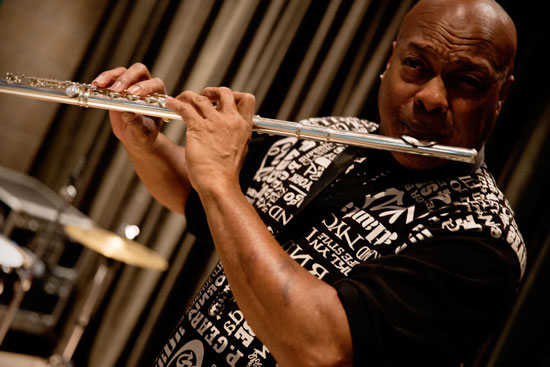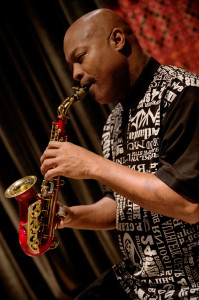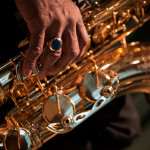Tags
Related Posts
Share This
Horace Young
In an office hidden in the twists and turns of Benildus, the walls are covered with posters, awards and articles. They include an autographed poster of Whitney Houston, a Gold Record commemorating a million copies sold by Regina Belle and several promotional posters of performances from around the globe. It takes a while to notice, but every single one is addressed to or features Horace Young, the new chairman of the Contemporary Music Program.
“My parents weren’t musicians but they believed it was essential, they knew its worth,” Young says about his beginnings. “My two elder sisters played the piano so I got to take classes too. I cheated at practicing. I memorized the melody from the way my sisters played and watched the way their fingers moved on the keys. I didn’t know it then but this was a clear sign of having a high aptitude. Now I am able to tell a kid to get involved in music because I can see the signs I experienced myself.”
Young had different plans for his future, though, hoping to become a sports journalist as a springboard into writing. He ended up playing the saxophone on a whim and turning it into a career. This return to music led him to collaborate with numerous acclaimed artists such as B.B. King and Nancy Williams. In 1993 he conducted the National Symphony of South Africa; the first person of African descent to do so.
“I started as an adult musician not being able to read music,” Young says. “I learned to celebrate my limitations in being able to overcome them.” His role conducting the National Symphony of South Africa was broadcasted on national television.
As a teacher, Young encourages the exploration of various skills and jobs in the music industry by incorporating it into his curriculum.
“I want to teach my students to define who and what they are as a musician, every aspect of how to promote and market self, and to let them become aware of other careers in music. In this industry you have to be flexible.”
The first assignment he gives to his students is to write a bio they will later use in their musical professions, edit it to encompass all of the skills they posses that they may later expand and use for various jobs involving performing, editing, and creating music.
Adaptability and willingness to learn allowed Young to explore and acquire a vast arsenal of skills, from creating jazz records to playing the keyboard in a house band popular in the Ukraine. “I know what its like,” he says, “for the student who wants to make their own music and produce their own record.” In fact, it seems like a lot of music majors seem to yearn for exactly that. “To be employed in the industry you have to be very good at who you say you are and even better at the jobs you have to settle for,” Young concludes.









 Jackalope Magazine is the student magazine of Santa Fe University of Art and Design. Building on the interdisciplinary nature of our education, we aim to showcase the talent of our university and character of our city.
Jackalope Magazine is the student magazine of Santa Fe University of Art and Design. Building on the interdisciplinary nature of our education, we aim to showcase the talent of our university and character of our city.
Recent Comments